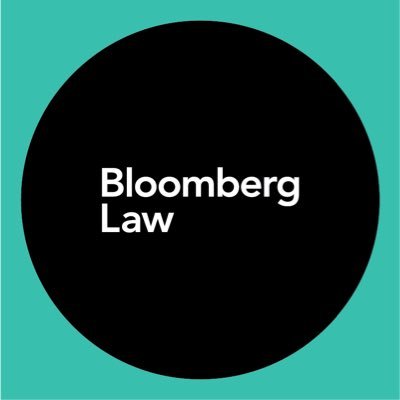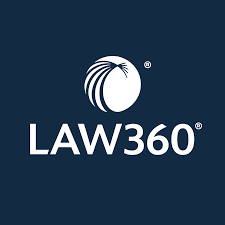By John Deaton. May 2, 2023. (Bloomberg Law).
US attorney John Deaton analyzes the impact of SEC v. Ripple and SEC v. LBRY on the agency’s enforcement around digital assets, where it pushes the boundaries of U.S. v. Howey, and how it redefines investment contracts and common enterprises.
The US Supreme Court issued the landmark SEC V. Howey decision in 1946, laying out a specific definition of what constitutes a security. Those justices couldn’t have guessed how complex digital commerce over encrypted lines of computer code would fit in almost a century later.
The Securities and Exchange Commission under Chairman Gary Gensler has its own idea of how cryptocurrencies should be regulated today, but bears little resemblance to that decision—and it’s straying into dangerous legal territory in court.
The Howey case involved orange groves sold by a Florida resort to tourists in a scheme where the investors earned passive income from the resort’s management and commercialization of the oranges. The so-called Howey test says a transaction is a security if it is an investment of money, in a common enterprise, with a reasonable expectation of profit derived from the efforts of others. All three prongs of the test must be met.
Hundreds of federal cases that followed found unregistered securities in the packaging and sales of whiskey, condos, chinchillas, oil and gas, and beavers. A scheme to sell any asset, including cryptocurrencies, could easily fit into this test. All modern securities law is built on it.
Ripple and XRP
But this isn’t what the SEC has been arguing for two years in the biggest unregistered securities enforcement action to date against a crypto company. The suit was filed against US software company Ripple Labs, which sells a digital payment solution for banks, and includes cryptocurrency XRP as a bridge asset to settle cross-border payments in seconds for almost no cost.
Since 2013, the company has also sold billions of XRP tokens it holds to various crypto exchanges who resold them on the secondary markets to millions of retail holders.
Over the last decade, the XRP ledger grew as a decentralized permissionless distributed ledger with a variety of uses by other companies and individuals. The XRP token eventually rose to having the third-highest market cap for any cryptocurrency in the world.
I am an XRP holder and trial lawyer, so I read the SEC’s complaint as soon as I heard about it. I expected to see the SEC pointing to a scheme of specific early sales by Ripple of XRP, which met the Howey test. That would’ve made sense. But I was shocked to read that the SEC was arguing that all sales of XRP have always been and would always be securities, because “the very nature” of the digital asset is to be a security and nothing else. The token itself is “the embodiment” of an investment contract in Ripple, they argue, even on the secondary markets with no involvement of the company, including mine.
This goes beyond anything the 1933 Securities Act and over 250 federal appellate and Supreme Court decisions about securities law ever imagined. The SEC’s argument is the equivalent of the oranges in Howey being “the embodiment” of the scheme to sell the groves. If that’s the case, how does a corner grocer register an orange with the SEC?
All US exchanges immediately suspended XRP trading in fear of SEC reprisal, locking up the tokens of innocent retail holders as the value plummeted by $15 billion. The collateral damage done to these holders that the SEC claimed to be defending was staggering.
I organized a class of over 75,000 retail XRP holders and gained amicus curiae status in the case. Our reasons are pretty logical. The vast majority attest they’d never heard of Ripple Labs when they acquired the token for their own purposes.
These lines of computer code they obtained can’t be an investment contract or a common enterprise with a company they’d never heard of, and nothing in the law—before or after Howey—supports that idea.
Judge Analisa Torres in the Southern District of New York is taking her time with a ruling in the Ripple case because she must understand the stakes, particularly on appeal. The questions to be decided go to the foundations of modern securities law, and what assets can and can’t be included in it. Torres also knows the current US Supreme Court has been knocking down regulators that overreach the powers Congress specifically granted them.
Similar Suits Follow
Other crypto companies from Coinbase to LBRY started facing similar SEC lawsuits. Gensler’s public statements on crypto grew sharper. The larger objectives became clear. He inherited the Ripple case from his predecessor, but he’s made its legal theory the centerpiece of an expansion of regulatory power in court, not through rulemaking or legislation. That has drawn Congress’ ire.
I’m all for clear rules and regulations to protect people. But the SEC is exploiting legal uncertainty about crypto to radically redefine what constitutes an investment contract and a common enterprise in the US. The legal and economic consequences could be enormous and that will only harm people.
This article does not necessarily reflect the opinion of Bloomberg Industry Group, Inc., the publisher of Bloomberg Law and Bloomberg Tax, or its owners.
Author Information
John Deaton is an American attorney acting as amicus counsel for retail digital asset holders in a number of high-profile federal SEC enforcement cases on crypto, most notably SEC v. Ripple (SDNY) and SEC v. LBRY (DNH).
Reproduced with permission. Published May 2, 2023. Copyright 2023 Bloomberg Industry Group 800-372-1033. For further use please visit https://www.bloombergindustry.com/copyright-and-usage-guidelines-copyright/













